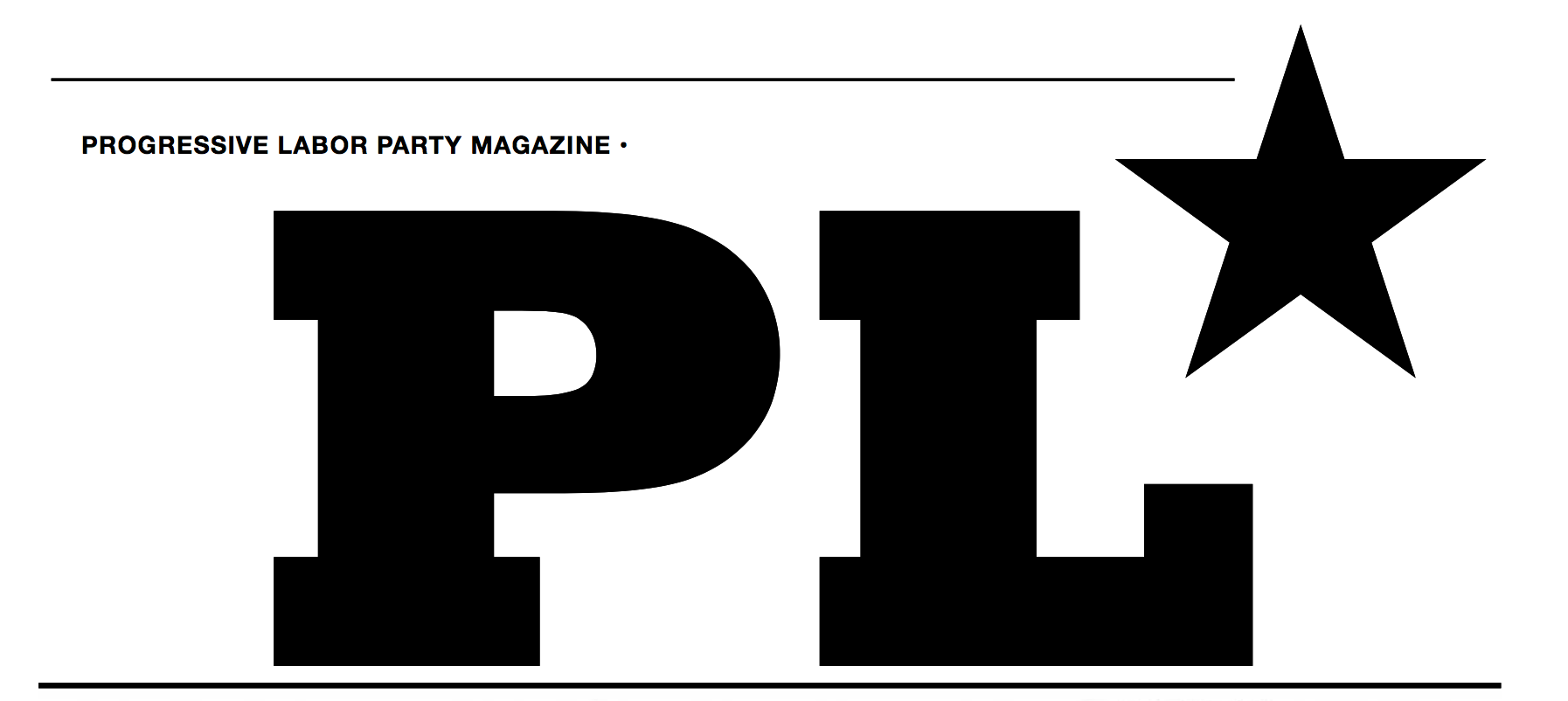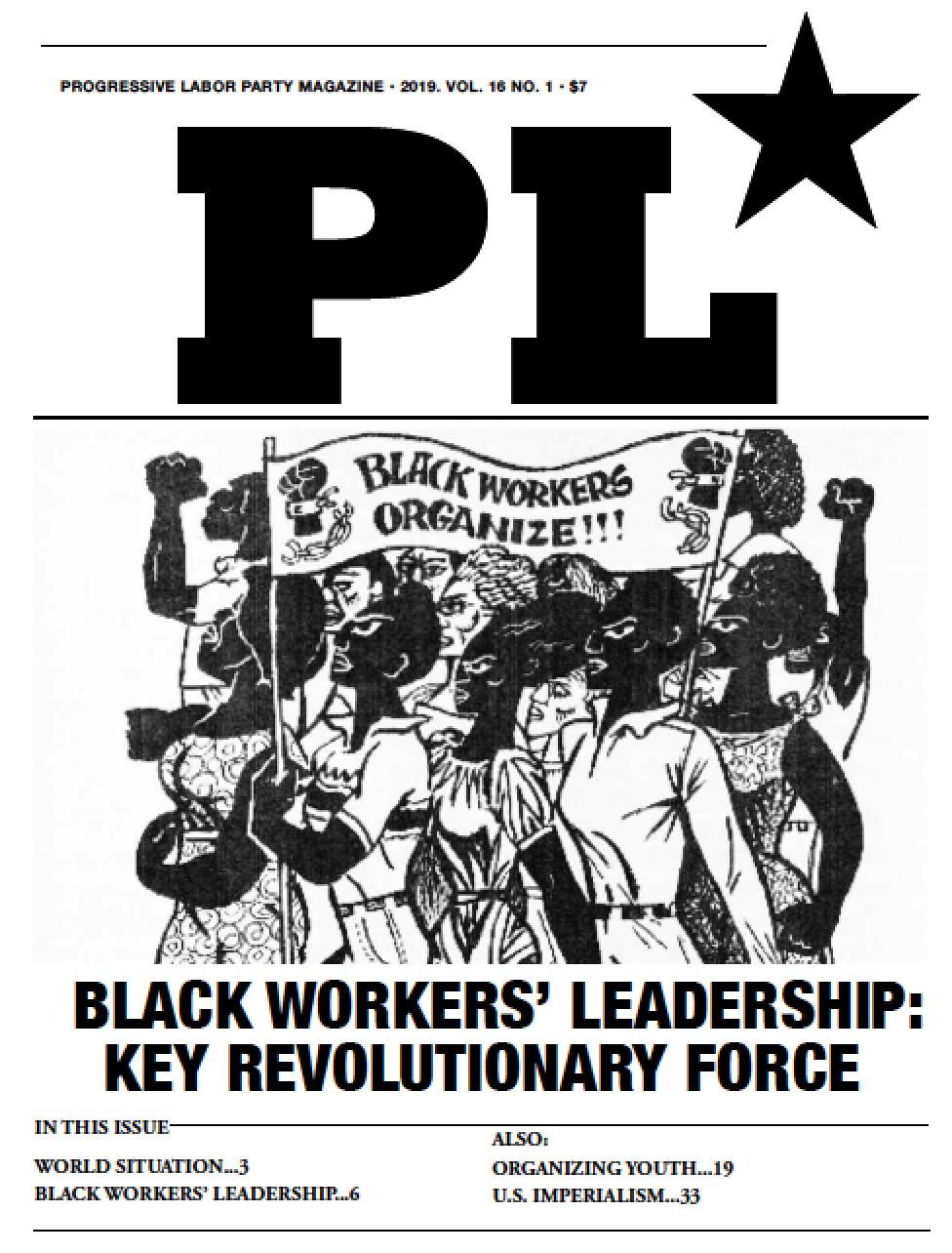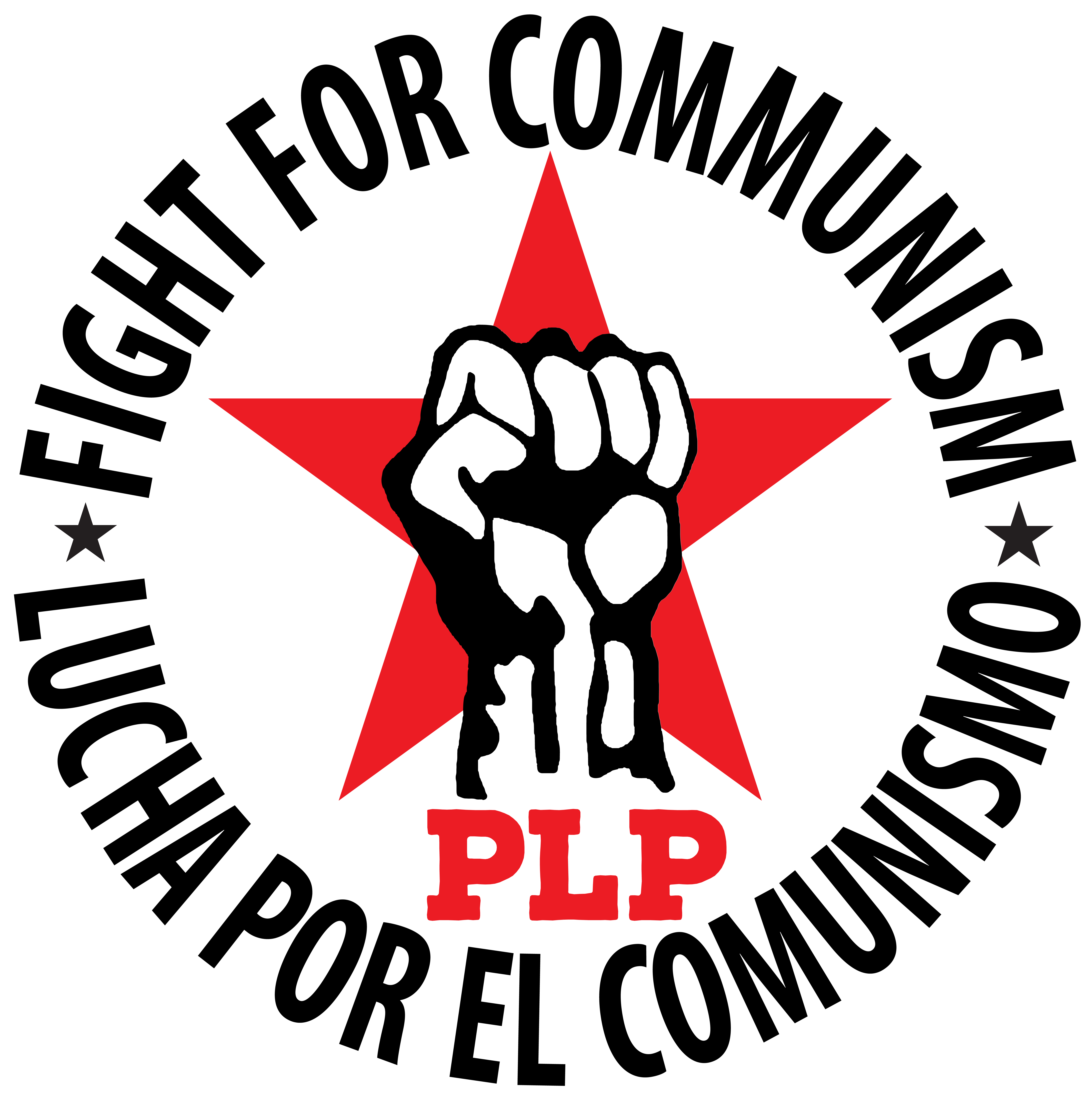PL History: Building the Party with Industrial Workers
 Thursday, May 7, 2015 at 2:37PM
Thursday, May 7, 2015 at 2:37PM In our May 6 issue, we published an article celebrating the 50th anniversary of the founding of the Progressive Labor Party. In addition to describing the origins of PLP — including its forerunner, the Progressive Labor Movement (PLM) — we noted four main principles for organizing a communist movement: a concentration among industrial workers; the fight against racism and sexism; internationalism, with one international party leading the international working class; and the necessity of armed struggle, since the bosses will never cede state power peacefully.
Beginning with this issue, we will revisit specific struggles that helped PLP grow to our current presence in 27 countries on five continents. We begin with our concentration among industrial workers.
The Hazard Miners Solidarity Campaign
In the winter of 1962-63, Black and white miners in Kentucky, Tennessee and West Virginia went on a bitter wildcat strike, rebelling against inhuman working conditions and starvation wages. (Average weekly pay was $25.) The mine owners, police and local officials launched a campaign of terror and scabbing to break the strike. Organizing out of their base in Hazard, Kentucky, five hundred rank-and-file miners armed themselves to prepare for class war. They dynamited bridges and blew up scab mines.
Led by one of our railroad comrades, a local union official, PLM formed the Trade Union Solidarity Committee (TUSC) to Back the Hazard Miners. TUSC organized in unions and working-class communities across the country, and workers responded enthusiastically. Truckloads of food, clothing and holiday gifts for miners’ children were shipped to Hazard, along with PL magazines that brought communist ideas to the strikers. A mass meeting in New York drew nearly a thousand workers and students in zero-degree weather to hear the miners’ rank-and-file leader, Berman Gibson.
The bosses went crazy. In a front-page banner outline, the Hazard Herald, screamed: “Communism Comes to the Mountains!” The liberals around President John Kennedy understood the hazard in Hazard: a multiracial group of armed miners uniting with communists to fight the bosses. They responded with a well-funded redbaiting campaign, and sent their anti-communist liberals to take over the Solidarity Committee.
Initially, the miners resisted the anti-communist attack. But as it mounted, Gibson and others retreated and turned to the liberals. After many months, the strike petered out. PLM learned vital lessons from this campaign:
• Workers will arm themselves to defend their class interests when it’s clear to them that armed struggle is necessary;
• Striking workers will respond enthusiastically to bold leadership;
• While the bosses won’t hesitate to use violence to break a strike or rebellion, their most powerful weapon is anti-communism;
• Red-baiting can be defeated only through protracted class struggle where communists give active leadership.
The 1964-65 Longshore Strike
On October 1, 1964, 60,000 members of the International Longshoremen’s Association (ILA) struck all ports from Maine to Texas to fight the shipowners’ demand to cut half their jobs. The strike’s impact on U.S. trade impelled President Lyndon Johnson to use a Taft-Hartley injunction to force the strikers temporarily back to work. The government demanded a settlement “within the national interest.” The resulting contract undermined workers’ job security. Anthony Scotto, head of the Brooklyn local (and a “made” member of the Mafia’s Gambino family), called it the “best contract ever.”
All eight New York City daily papers lauded the contract. Only CHALLENGE, PLM’s newspaper, exposed the sellout and called on workers to reject it. The paper was distributed up and down the docks. Many workers asked for extra copies to distribute, despite their union’s anti-communist leadership.
A worker told CHALLENGE that the federal government had been ready to indict the ILA’s gangster-ridden leadership for racketeering, but offered to quash the indictments if the leadership persuaded the rank and file to ratify the sellout contract. When CHALLENGE exposed this deal on its front page, Scotto denounced the paper’s “red lies” at a meeting of over 2,000 longshoremen in Brooklyn. He read the entire flyer out loud. But the workers, hearing the contract detail for the first time, were so enraged that they voted overwhelmingly to reject the contract and go back on strike.
‘Reds Under Their Beds?’
The bosses’ press reported that “communist influence was swaying” the dockers to oppose the contract. ILA president Teddy Gleason blamed “communists” for the rank-and-file rebellion. Scotto pointed to “outside agitators.” The World-Telegram’s front page declared: “Red Hand Seen on the Waterfront.” Victor Reisel, a notorious anti-labor columnist, ranted that “Chinese revolutionaries” were “spreading unrest on the docks” and warned that Mao Tse-Tung was “taking over our great urban centers.”
CHALLENGE ran its own headline: “Dockers Resist Sellout, Bosses See Red!”
Johnson’s assistant secretary of labor ordered the FBI to “investigate communist influence on the New York and Baltimore docks.” A new contract added a few crumbs for workers. A majority of the working longshoremen voted it down, but the misleaders used other trades in the union and retired workers to get it passed, ending a four-month struggle. Containerization was ushered in, and thousands of jobs were lost in the years that followed.
PL’ers learned that workers are less likely to fall for red-baiting or be intimidated by mobsters when they are consciously engaged in class struggle. We also witnessed the importance of multi-racial unity. With Black and white longshoremen working together on the job and in the strike, the bosses were unable to use racism to split and weaken them.
Finally, our experience with the ILA helped PL understand the absolute necessity of being embedded in the working class, rather than working from the outside. While our literature played a big role in the strike, our lack of members on the docks hindered our ability to recruit longshoremen and build our organization. The bedrock principle remains: To win workers to revolution, communists must build a base in the working class.
PLP Leads Washington, DC’s Transit Workers
For 40 years, PLP has been a leading force among thousands of transit workers in the Metro system in Washington, DC. In the 1970s, local government took over the private bus companies as the workforce changed from mostly white to mostly African-American. In 1978, the new public transit authority attacked workers by attempting to deny them a cost-of-living increase in a period of high inflation. PLP members and friends led a six-day wildcat strike that defeated the attack. The bosses’ attempt to fire the strike leaders failed.
In the early 1990s, Metro attacked again, threatening to privatize the bus fleet unless workers accepted wage and benefit concessions. The Party and militant workers led hundreds in fights against cuts in bus service and jobs. Meanwhile, the union misleadership agreed to a cap on wage-step increases, lower starting salaries for new workers, and a slower wage progression. During these battles, a PLP’er was elected to the union’s executive board.
In 1998, the union leadership agreed to further givebacks in wage progression, along with limited health insurance benefits for new workers and defunding of the pension system. The PL’er was the only executive board member to oppose this sellout. In 2004, he won the local presidency. The overwhelmingly Black membership refused to succumb to anti-communist attacks and to a nationalist appeal by the incumbent Black president. They followed their class interests in uniting behind the white PLP member.
In the 2004 contract, the wage progression was reduced, and Metro was required to contribute to the pension fund. A new wave of anti-communism was aimed at the Party member, who returned to driving a bus. By that time, however, hundreds of workers had been influenced by PLP and CHALLENGE. A number of them joined the Party. The fight against privatization and anti-worker discipline has been waged by a new generation of Party members at Metro.
Currently, the Party is leading an anti-racist fight against background checks that would bar employment for workers convicted by the bosses’ criminal injustice system. A disproportionate number of these workers are Black; the background checks would cut off one of their few avenues to higher-paying jobs.
The struggle to fight the bosses and to build the Party continues.
(To be continued)





 Progressive Labor Party (PLP) fights to destroy capitalism and the dictatorship of the capitalist class. We organize workers, soldiers and youth into a revolutionary movement for communism.
Progressive Labor Party (PLP) fights to destroy capitalism and the dictatorship of the capitalist class. We organize workers, soldiers and youth into a revolutionary movement for communism.




Reader Comments